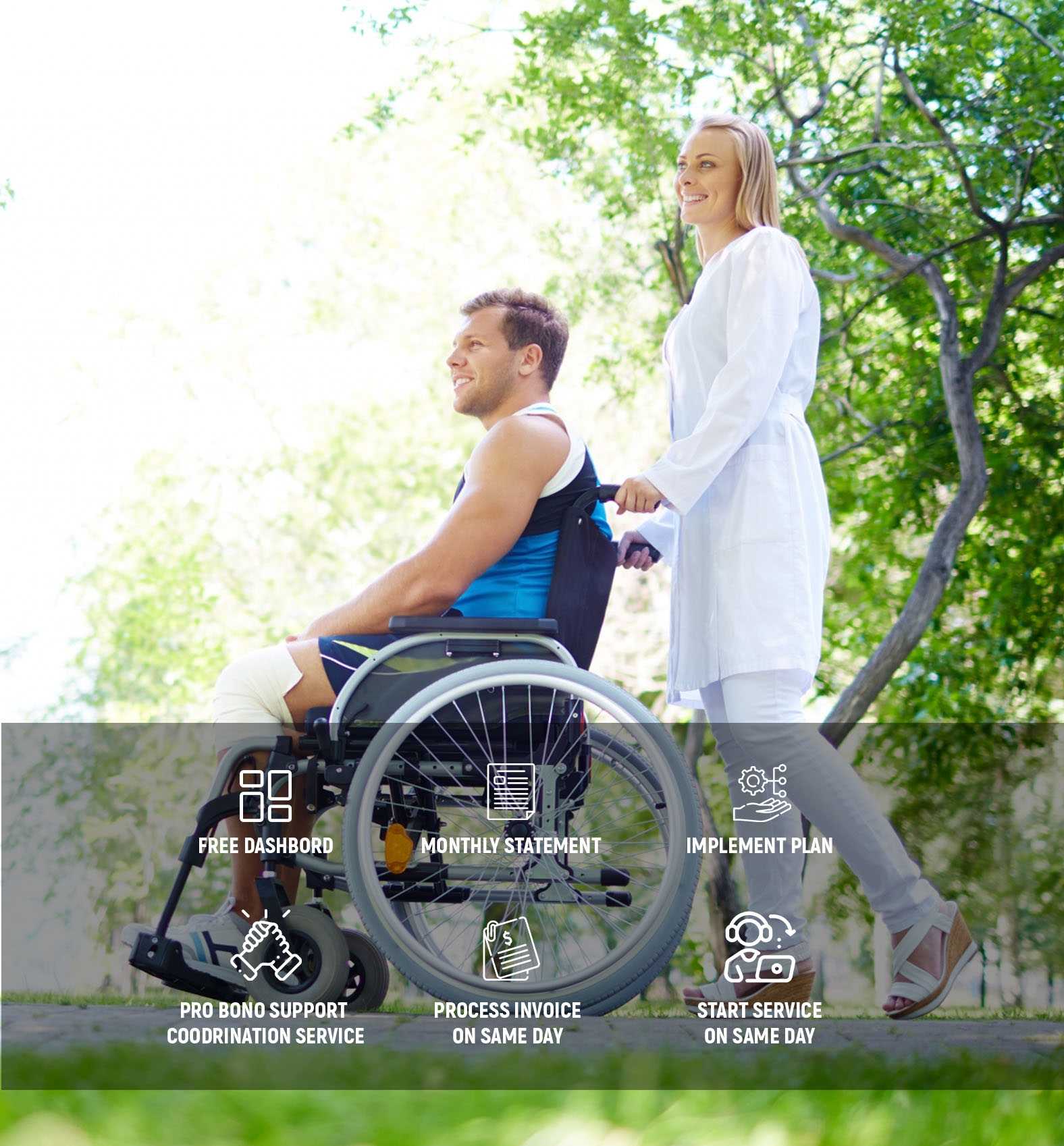Have you got a meeting with your NDIS planner coming up? There areseveral things you can do to prepare and get the most out of it. You must be well prepared when meeting with your NDIS planner because they’ll ask you questions about your disability, the supports, and services available in your area, and what goals you want to achieve.
For many, the planning meeting is the first step of their NDIS journey, and it’s always good to get started on the right foot.
So, here’s some advice and tips on how to head into your planning meeting well prepared and ready to take on the future.
Write out some lists about yourself
The NDIS planning meeting is all about you. You’re the star of the show, and how well you’ve prepared as much information as possible will determine how successful you’re meeting with your NDIS planner is.
So, the first step to heading into the planning meeting well prepared is by writing out lists of information about yourself.
You can start by writing down some basic information about yourself—things like your name, date of birth, address, age, marital status, employment status.

Then you can get started on some lists that have to do with your day-to-day living. You can write down everything you might do in a day—starting with what you do when you wake up right through to when you go to bed. Think of it as trying to summarise a typical day for yourself – what you do, how you eat, where you go to school or work, what supports you might see, and any choirs you might do.
You can also write a list of special events that you like to do but might only do them occasionally. Think about things like sports, special outdoor activities like walking to the park or beach, visiting a friend or family member, or going out for dinner, a movie, or perhaps a show.
Also, think about the functionality of all of your activities. How do I get transport? What do I eat when I’m out, or how do I go to the toilet?
This information will help your NDIS planner better understand what a typical day is like for you and the support you need to do things that you enjoy. Your NDIS planner will then use this information to determine what supports and services might be available to help you in the future.
Be honest about your disability and your capabilities

Your NDIS planner will be asking you specific questions about you and your disability. The questions they’ll ask will be based on a government checklist directed at six areas of your life. It’s essential that you’re honest about what you can do, what you can’t do, and what you need from service providers.
The areas of your life the questions will be directed at will be
- Cognition: How well you can understand information and communicate with others
- Participation:Do you take part in community activities?
- Personal Care:Are you able to maintain good hygiene? Feed yourself or remain unsupervised for extended periods.
- Day to Day Activities:Are you able to take part in school or the workforce? Can you maintain a household through domestic chores?
- Social Skills:Are you able to interact with other people and form relationships?
It’s often tempting to want to give a positive spin on any of these areas. However, your NDIS planner will use these answers to help them decide how to spend your NDIS funding. If you’re honest about your capabilities, you’ll find it easier to get the services that will help you achieve your goals.
Bring a support person
Walking into your first planning meeting can seem daunting. Your NDIS planner will ask you lots of questions about your situation, and the whole process can feel intimidating and overwhelming. If you have someone with you, it can make the entire meeting a lot more relaxed, and you can focus on their questions whilst having another person there to help if you get flustered. It’s common for people to bring a support person in for several reasons, which may include
- Having someone to translate between languages
- Requiring Auslan interpretation
- Mobility Assistance
- Emotional Support
- A long-term support worker who understands your disability

Of course, it is your right to have someone there with you so it’s up to you who you would like to bring.

Set yourself some goals
During your planning meeting, the NDIS planner will be asking you what would help you improve your life. These goals could be related to employment, community participation or day to day living.
Thinking about your goals will help you work through what you would like to achieve throughout your NDIS journey. Goals can be significant, life-changing milestones that you might take years to achieve—things like starting a new job, finishing your education or living independently in a home. Our goals can be small and short term, such as making your breakfast every day, talking to more people, building on your day to day quality of life.
When you have an idea of some of the goals you want to achieve, start thinking about the practicalities of achieving these goals. Think about what supports your might need or what equipment would help you reach your goals.
Think of a goal as a snapshot in time of where you want to be in your life. During your planning meeting, you will begin to set your goals, so it’s essential you have put some thought into it beforehand.
Bring any Documentation and Reports you might have
When working with any government organisation, it is important to have as much documentation as possible. The same goes for the NDIS. The more documentation you can supply, the more efficiently the entire planning process will go. The types of documentation are varied, but here are some common types of documents you might want to consider taking to your planning meeting:
Health and Disability
Any information about your disability and health situation will be extremely useful to the planner as it will better inform them of your needs. These documents could be recent reports from your doctors, physiotherapist, psychiatrist, support workers. Maybe even receipts for equipment you may have purchased in the past or invoices paid to disability services and supports.

Also, if you require help at home to move around, take some photos of your current situation for the planner to make copies of for their records.
Community Participation
If you participate in any community activities, make sure to bring in any information that may be useful. Costs associated with transport, fees, and equipment may be covered under your plan. And don’t forget about documentation that relates to your work or education
Identification and family documents
It’s important to remember your identification and proof of residence if you have it available. Also, suppose you have family that cares for you or perhaps a non-family member that is a guardian or primary carer. In that case, it’s helpful to have any official documentation related to that.
Think about how you want to manage your NDIS funds

Even during the initial planning stage for your NDIS product, you will need to begin to think about the best way for you to manage your NDIS funds. There are three ways you can manage your funds – Self-managed, NDIA managed and plan managed.
If you ask that your NDIS funds become plan managed, an extra funding source specifically for that type of management can become available. Whilst every individual is different; the plan managed NDIS funds option gives participants the greatest peace of mind and freedom. A plan manager is someone who specifically keeps track of your NDIS funding and works with you to get the most out of your plan.
At My Care Plan Manager, we bring years of financial planning and advisory to all our customers and ensure they receive the best possible outcomes.

